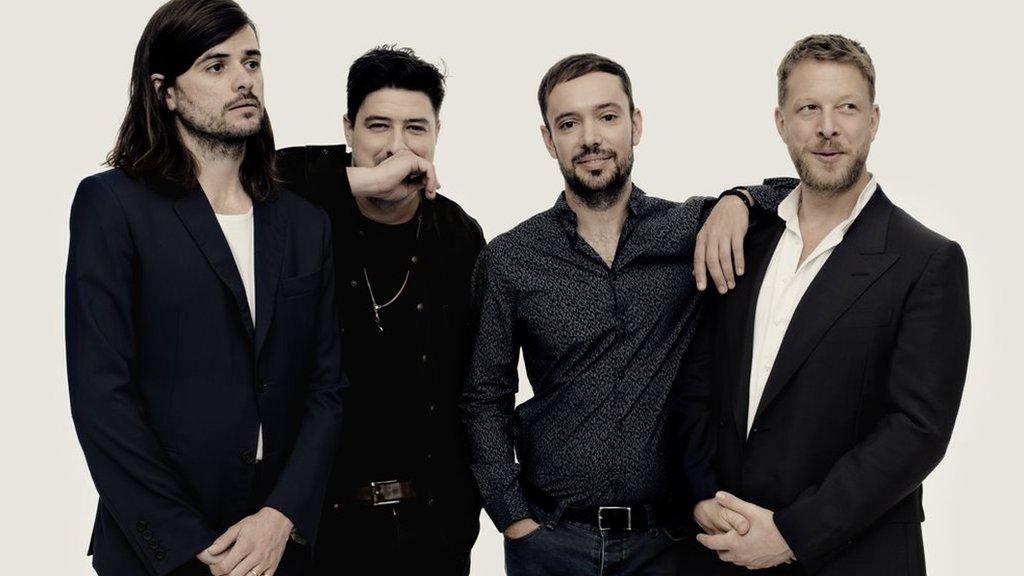Winston Marshall says internet mob targeted Mumford and Sons bandmates
- Published
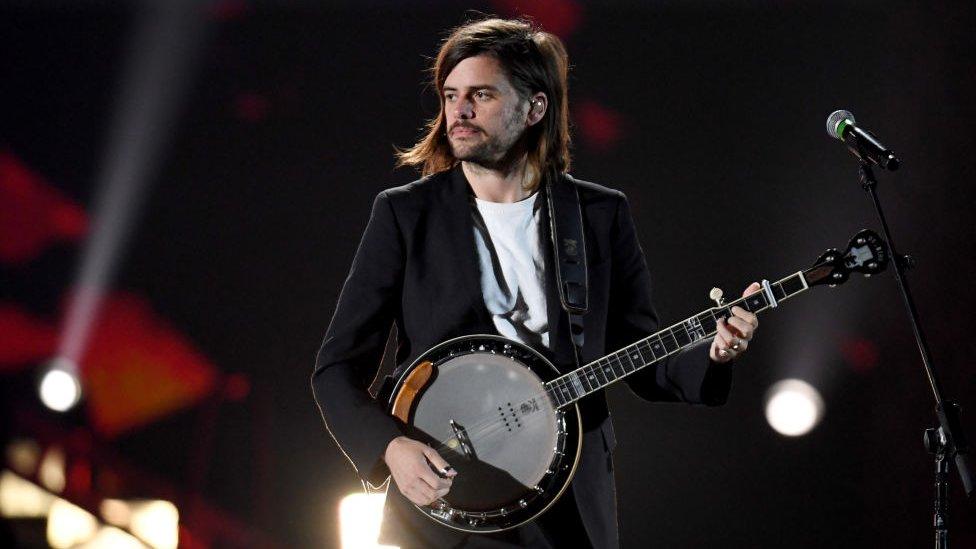
Marshall told the BBC he plans to continue speaking out on matters that are close to his heart
Winston Marshall has said he quit Mumford and Sons to spare his bandmates from abuse, after he endorsed a book by conservative journalist Andy Ngo.
The musician said his bandmates were "dragged under the bus" by an "internet mob" who disagreed with his views.
"They went for my friends," he told BBC Radio 4's Today programme. "And that's not fair on them because it's got nothing to do with them."
The guitarist and banjo player revealed his decision to leave last week.
The saga began in March when Marshall, from London, congratulated Ngo on the publication of his book - which argues that far-left activists have "radical plans to destroy democracy".
While the LA Times called his work "wildly dishonest", Marshall tweeted that Ngo was a "brave man" who had written an "important book".
The online backlash amounted to "tens of thousands" of tweets, he said on Tuesday in his first interview since quitting the Brit and Grammy Award-winning folk-rock group.
"There was just a lot of very horrible negativity… and a lot of nonsense and lies," he said, noting that his bandmates had also been targeted.
"In the public eye we were a unity [sic] and that's what I suppose these internet mobs do - they go for all those people around you.
"It became quite a big story, particularly in America - and it felt like very distracting, unwanted attention and possibly damaging for the brand of the band."
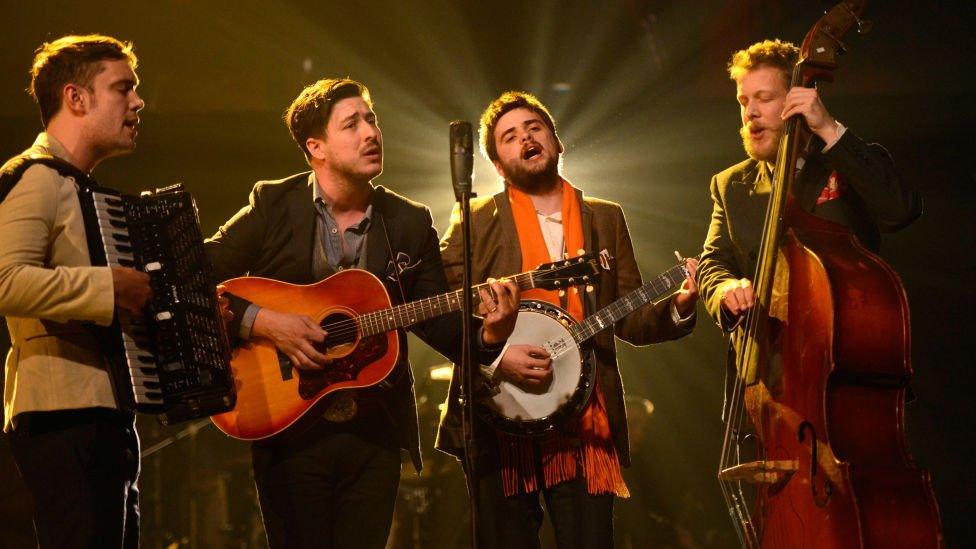
The musician said his bandmates stood by him and asked him to remain in the band
After the initial criticism, Marshall announced he would take time away from the group, and apologised for the "pain caused by the book I endorsed".
However the musician, whose father Sir Paul Marshall is a hedge fund investor and a backer of the GB News television channel, now says he regrets that decision.
"The apology I put out, I felt, participated a little bit in the lie that such extremism doesn't exist," he said. "And that was really bothering my conscience.
"So I felt my integrity being gnawed at and the only way I could square those two things is by this decision I made."
Marshall announced his departure from Mumford and Sons last week, posting a lengthy statement in which he expressed anguish at being portrayed as a supporter of the far-right.
"I failed to foresee that my commenting on a book critical of the far-left could be interpreted as approval of the equally abhorrent far-right," he wrote. "Nothing could be further from the truth."
He added that 13 members of his family had been murdered in concentration camps during the Holocaust in World War Two.
Allow YouTube content?
This article contains content provided by Google YouTube. We ask for your permission before anything is loaded, as they may be using cookies and other technologies. You may want to read Google’s cookie policy, external and privacy policy, external before accepting. To view this content choose ‘accept and continue’.
Mumford and Sons formed in London in 2007 and rose to fame with hits like Little Lion Man and I Will Wait. They headlined the Glastonbury Festival in 2013 and released their most recent album, Delta, in 2018.
Asked whether his continued presence in the band could have damaged their career, Marshall said his bandmates had "stood by me and invited me to continue".
He added: "They've been perfectly honourable throughout and I'm very grateful for that.
"I still, sort of, obviously regret that this situation even came about and, with hindsight, it was a foolish tweet to have made. But it's sort of happened and I'm at peace with it, I think."
The 33-year-old added that he hoped to be more outspoken about the issues close to him in the future.
"Whenever topics so inspire me, I hope I can speak about them - whatever those topics may be," he said. "And I want to be able to speak without those around me, those I love, getting in trouble for that.
"Whatever those topics might be - if it's Hong Kong, if it's the Uighurs, who knows what is next - I hope to speak freely and that's a big part of the decision I made."

Follow us on Facebook, external, or on Twitter @BBCNewsEnts, external. If you have a story suggestion email entertainment.news@bbc.co.uk, external.
Related topics
- Published25 June 2021
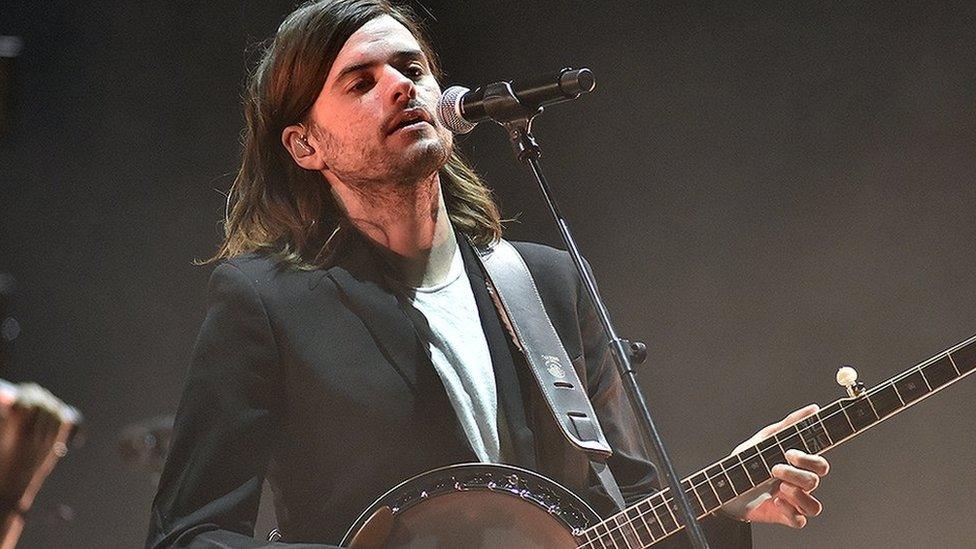
- Published10 March 2021
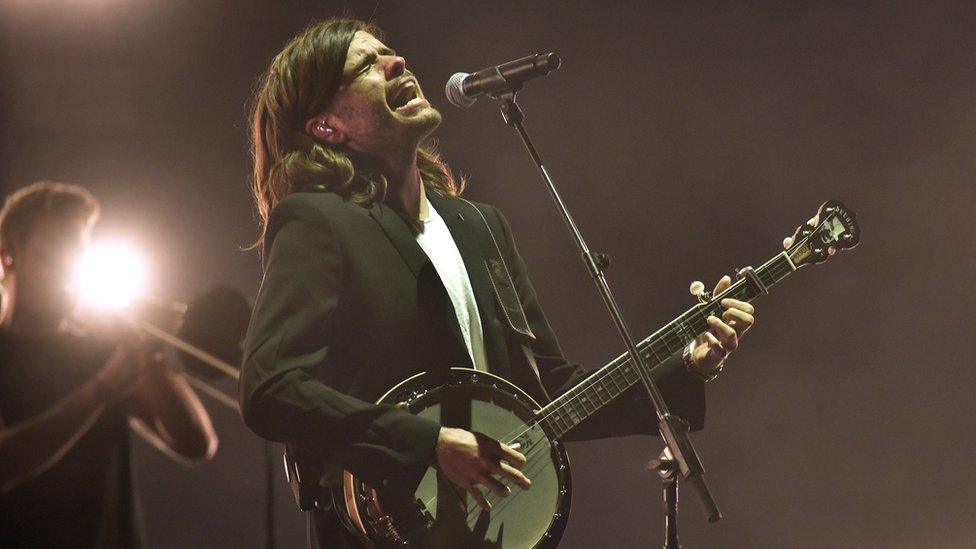
- Published20 September 2018
